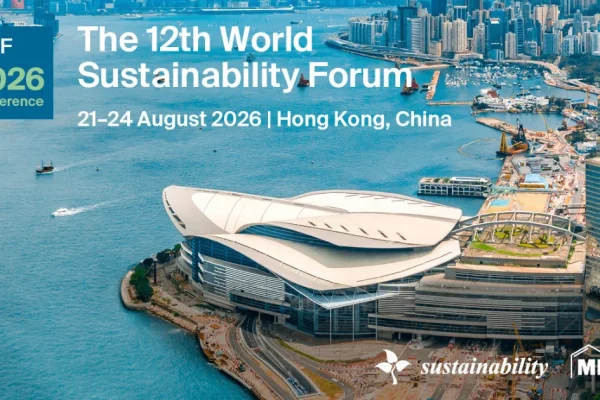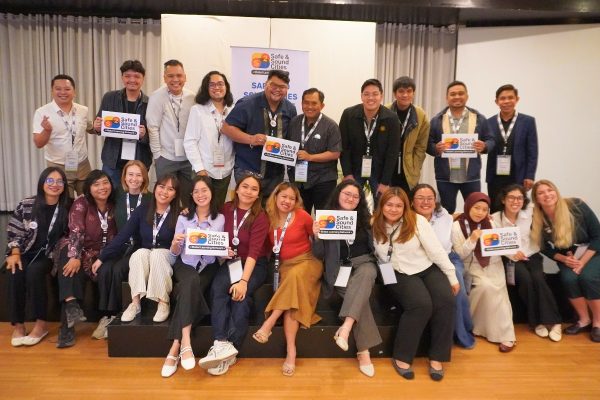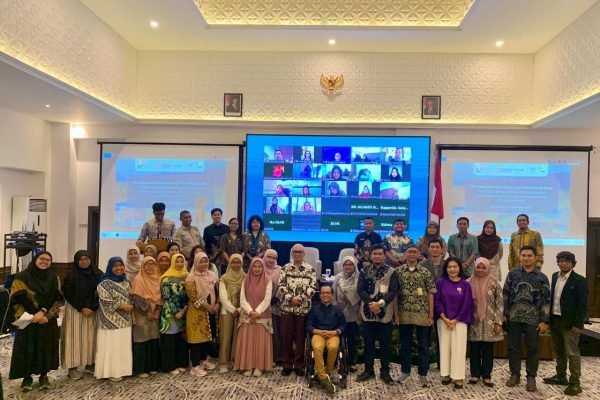Participants during the street design lab activity.
ICLEI SEA and the Institute for Climate and Sustainable Cities (ICSC) held a capacity building workshop for 41 personnel from the Quezon City and Pasig City Governments, the Department of Transportation (DOTr), the Department of Economy, Planning, and Development (DEPDev), the Department of Public Works and Highways (DPWH), Metropolitan Manila Development Authority (MMDA), and Clean Air Asia as part of the Sparking Active Mobility Actions for Climate-Friendly Cities (SPARK) Project last June 2-5, 2025.
Supported by the German Federal Government through its International Climate Initiative (IKI), the SPARK Project aims to encourage climate-friendly mobility practices in Pasig City and Quezon City, Philippines, help meet national emission reduction targets, and strengthen the role of active mobility in creating safe and resilient transportation networks.
The workshop first introduced active mobility or human-powered movement as a means of transportation, citing narratives of the positive impact active mobility has around the world, the role of economic storytelling in policy and urban development, and using tactical urbanism to test pilot developments. A learning session was held, covering the Logical Framework Approach (LFA), the Project Logical Framework (PLF), and the 5C2 framework for structuring, planning, and reviewing transport development projects.
For a scenario planning activity, participants were grouped and each team explored various scenarios of different stakeholders driving transport reform. Budget and policy integration, stakeholder engagement, and citizen participation were all evaluated to develop an action plan for a mobility initiative in their city, and a pledge was made to one implementation step to ensure the action plan translates into actionable policies. The program then culminated in a street design lab where participants proposed design revisions to a given intersection.
Through this training program, the SPARK Project made progress in its goal of creating safe, low-carbon transport networks through capacity building, policy integration, and collaboration.
Written by Claudia Ragandap
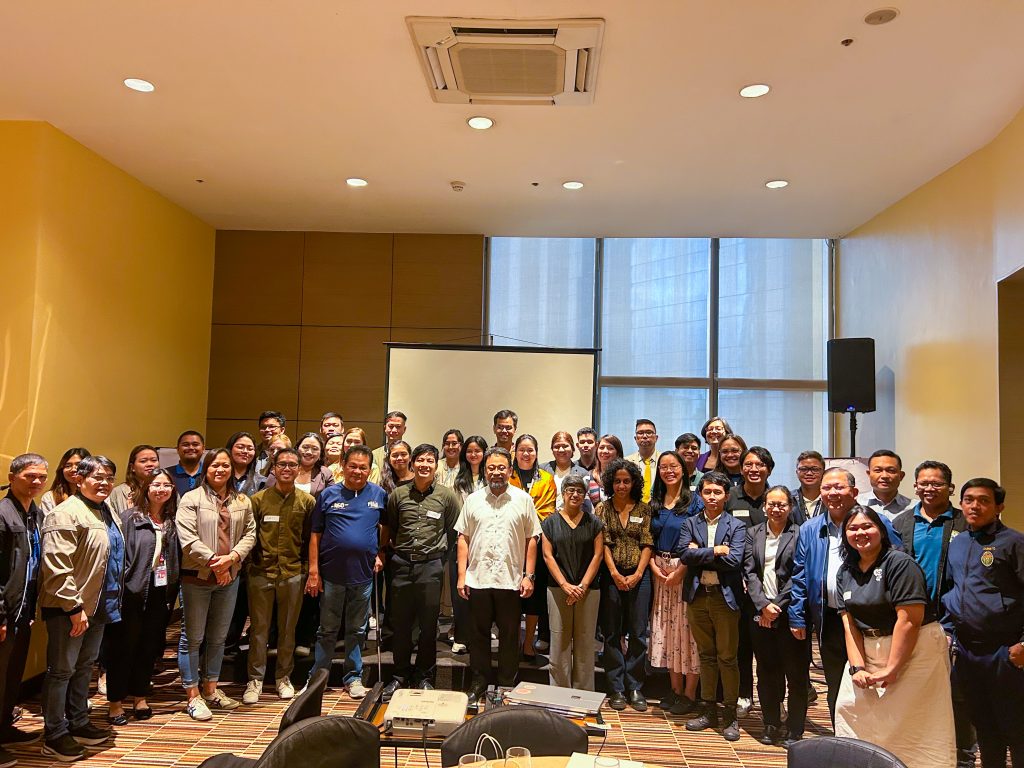
Participants and facilitators of the SPARK Project capacity building workshop for local government unit (LGU) personnel of Quezon City and Pasig City last June 2, 2025.
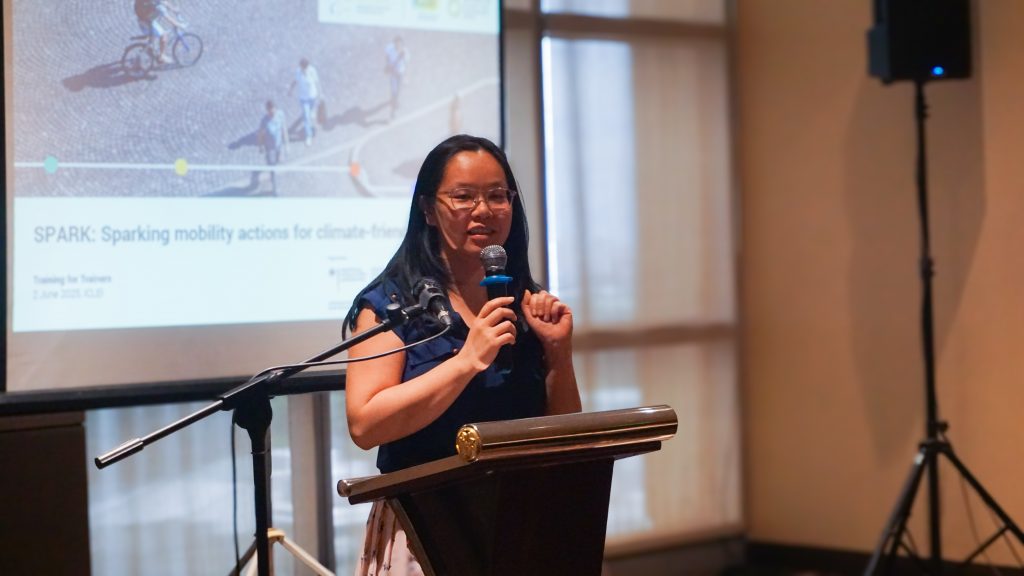
Tu My Tran, ICLEI World Secretariat Head of Sustainable Mobility, introduces the SPARK Project.
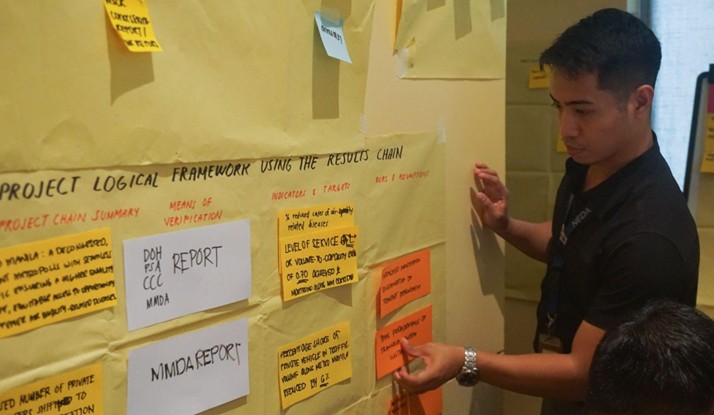
A participant completes a logical framework during the planning activity.
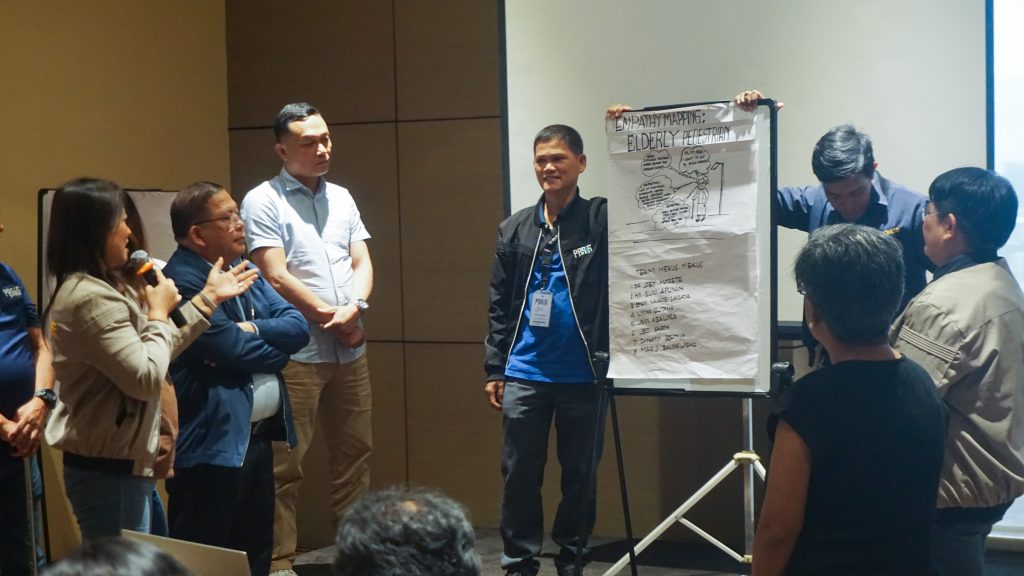
Participants during the planning activity.


